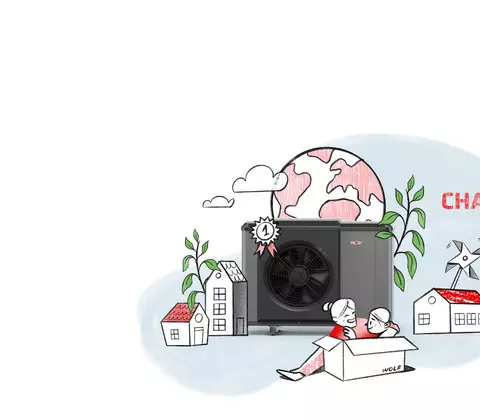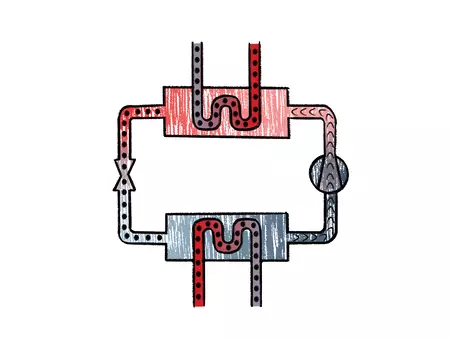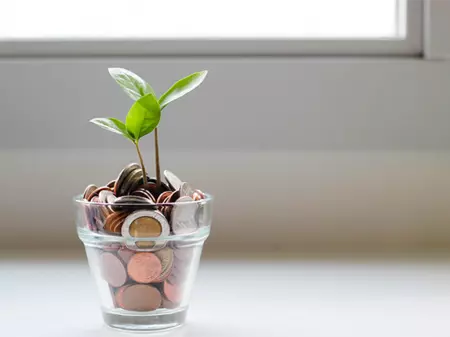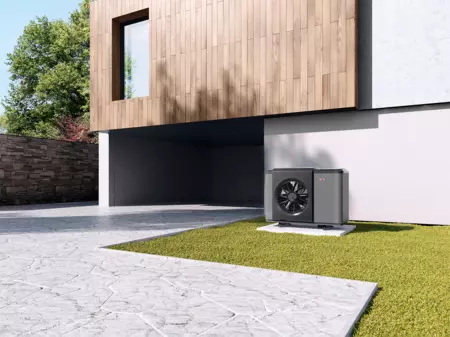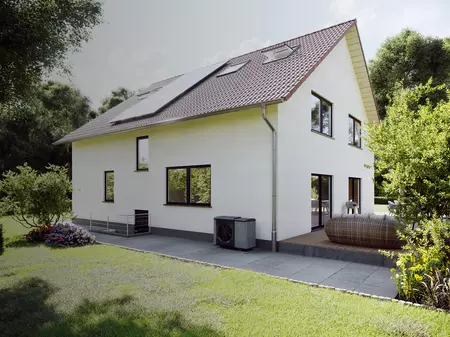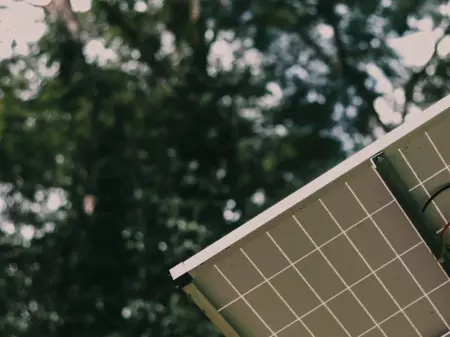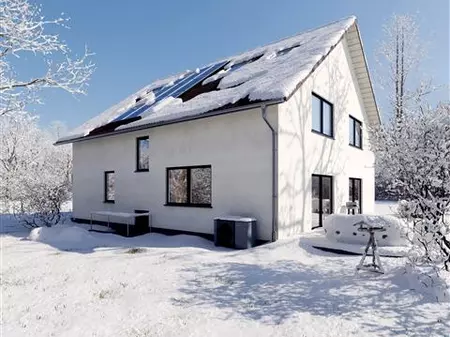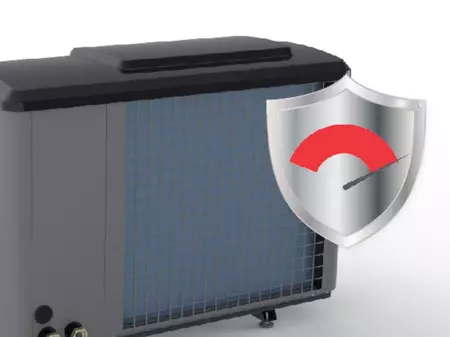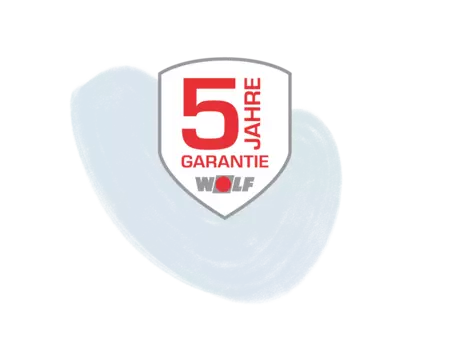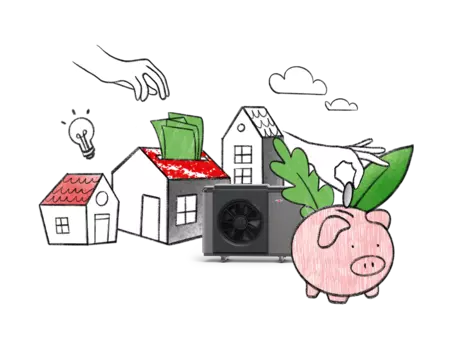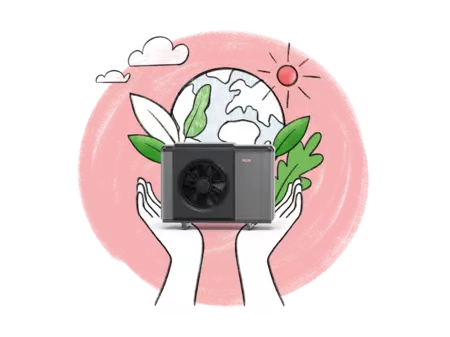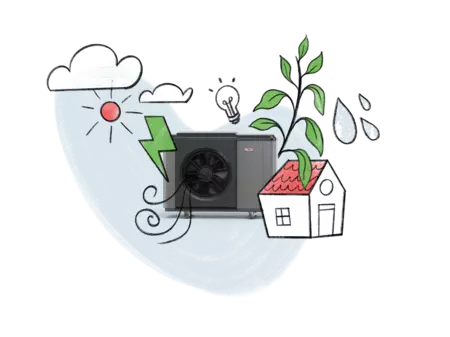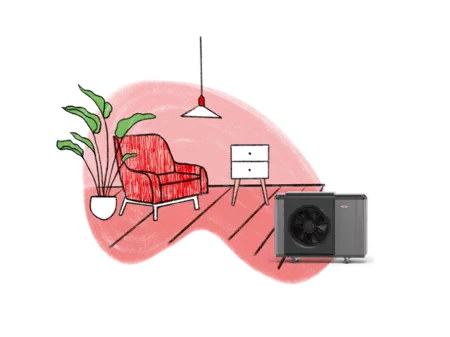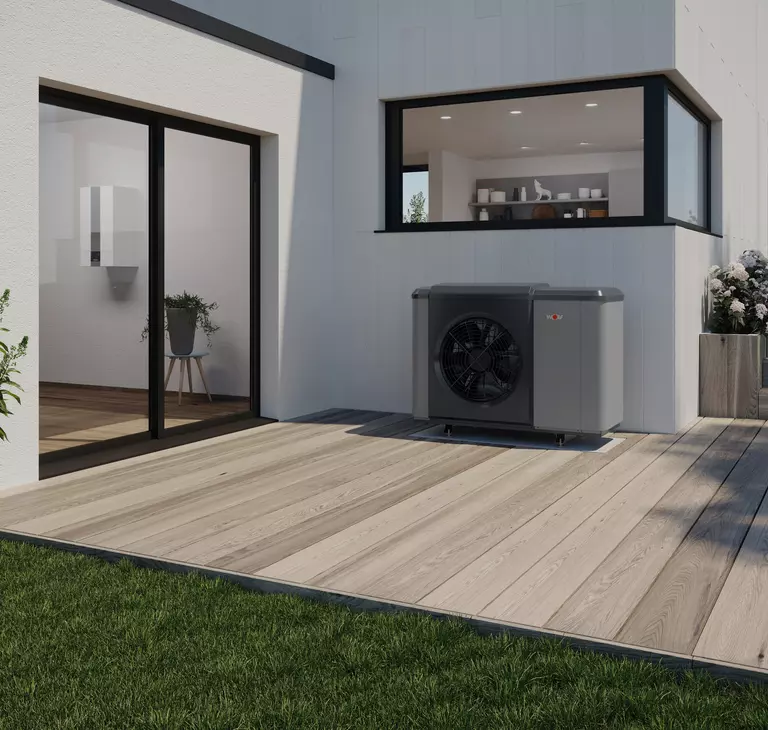The function of a heat pump is based on a cycle in which a refrigerant absorbs heat from the environment and "pumps" it to a higher temperature level. The heat energy can also be extracted from the air at minus temperatures and multiplied by means of auxiliary energy (electricity).
1. Evaporation: the refrigerant absorbs environmental heat and evaporates - it becomes gaseous.
2. Compression: The compressor compresses the gaseous refrigerant - the temperature level rises.
3. Liquefy: The refrigerant releases the heat energy in the condenser to the building's heating circuit - in the process it becomes liquid again.
4. Expansion: The pressure is reduced by the expansion in the expansion valve - the cycle now starts again.
Highest efficiency in practice
In most existing buildings, it achieves JAZ values between 3.5 and just under 4, in new buildings approx. 4.5. This means that the unit makes 4.5 parts heat from one part electricity.
Highest efficiency in practice
In most existing buildings, it achieves JAZ values between 3.5 and just under 4, in new buildings approx. 4.5. This means that the unit makes 4.5 parts heat from one part electricity.
